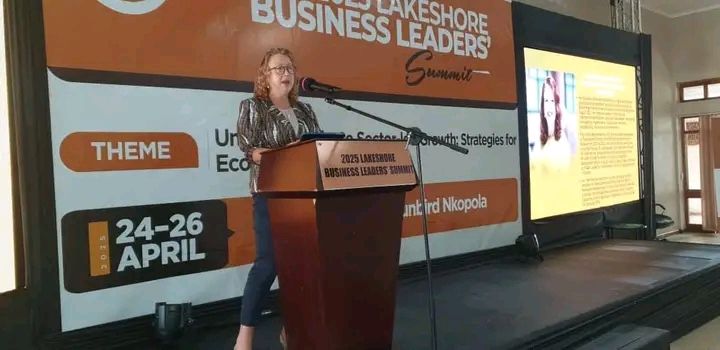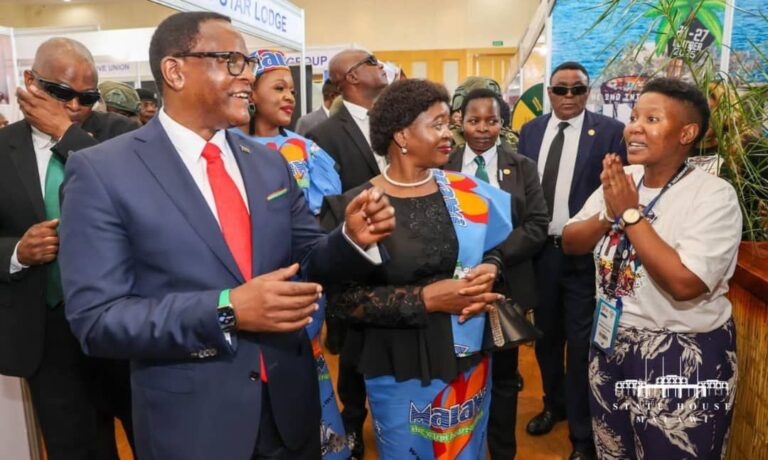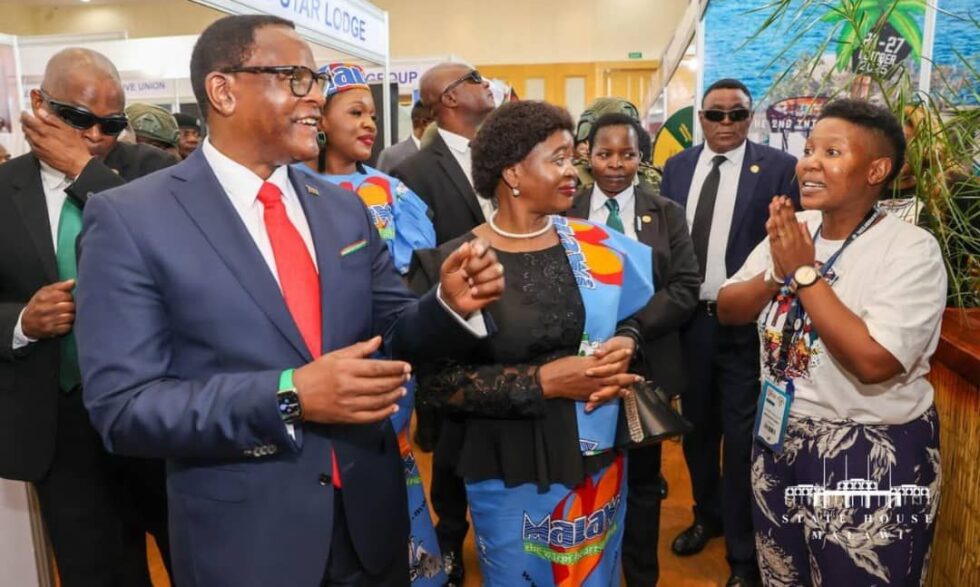By Jones Gadama
Malawi’s economy needs to undergo a significant transformation by reducing its dependence on donor funding and embracing private investment, according to British High Commissioner to Malawi, Fiona Ritchie.
Speaking at the official opening of the 2025 Malawi Confederation of Chambers of Commerce and Industry lakeshore conference, Ritchie emphasized that the era of abundant grants is coming to an end, and a new approach is required to drive development.

Ritchie stressed that the private sector should be at the center of development, driving economic growth and creating wealth. “This requires a new approach, which puts the private sector at the centre of development,” she said.
This shift in approach would enable Malawi to move beyond managing poverty and focus on generating wealth.
The British High Commissioner’s sentiments come at a time when Malawi is grappling with economic challenges and a decline in development aid. According to Ritchie, the country needs to create an environment that is conducive to business growth and investment.
This can be achieved by ironing out bottlenecks that deter potential investors and making the country more attractive to foreign investment.
The UK government has reaffirmed its commitment to supporting Malawi in its development projects, with a focus on promoting economic growth and reducing poverty.
In the past, the UK has provided significant funding to Malawi through various initiatives, including the Department for International Development’s (DfID) Private Sector Development Project. This project aimed to support businesses with advice and finance through a venture capital fund for small and medium enterprises (SMEs).
To attract foreign investment, Malawi needs to become more competitive with its regional peers.
The country has opportunities to attract foreign investment, which can drive growth, provide foreign exchange, create jobs, and generate tax revenue. The UK is committed to growing bilateral relations with Malawi, with a focus on education, health, and agriculture.
Malawi needs to create a supportive investment climate that attracts foreign investment. This can be achieved by streamlining bureaucratic processes, addressing policy inconsistencies, and investing in infrastructure development.
The private sector should be encouraged to drive economic growth and create wealth through initiatives that support entrepreneurship, innovation, and job creation.
Malawi’s economy needs to be diversified to reduce its dependence on a few key sectors. This can be achieved by promoting investment in various sectors, including manufacturing, tourism, and technology.
The UK has been a long-standing partner to Malawi, providing support in various areas, including health, education, and economic development. The UK has also invested tens of millions of pounds in successful firms in Malawi through British Investment International and AgDevCo.
Private British companies have made significant long-term financial commitments in Malawi, and the UK government is committed to growing bilateral relations with the country.
Malawi’s economic future depends on its ability to attract private investment and reduce its dependence on donor funding.
By creating a supportive investment climate, promoting private sector growth, and diversifying its economy, Malawi can achieve sustainable economic growth and development.
The UK’s commitment to supporting Malawi’s development projects is a positive step towards achieving this goal.





